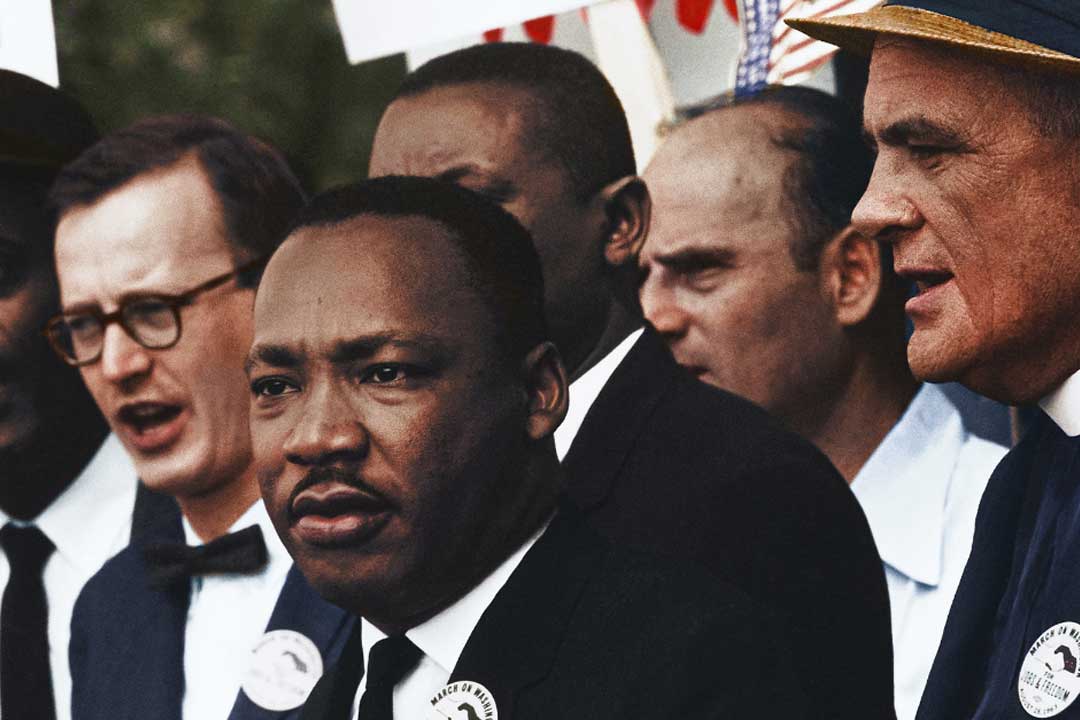Paul preached patience when dealing with people sidelined in life.
Regardless of whether individuals remained out of the battle due to laziness, apathy, fear, or brokenness, he said all of them must be treated with patience.
We don’t care much for patience these days. In an age where technology provides blazing ways to communicate, research, and entertain, patience feels a lot like a ball and chain. As it relates to work and metrics, we are far more enamored with efficiency than patience. Lightening quick results are more desired from our devices, our colleagues, and investments than patience. Therefore, we could conclude that in this age of hyper-efficiency, impatience is seen as more virtuous than patience.
Patience vs. Passivity
In 1963, eight white Birmingham pastors were demanding a “form” of patience from Dr. Martin Luther King Jr and the Civil Rights Movement. They did not appreciate the peaceful protests that Dr. King had helped organize to address the legalized segregation, police brutality, and blatant hatred that was still thriving in one of the south’s most racist cities. They encouraged Dr. King and his supporters to “wait,” to allow events to naturally unfold, and to see if other forms of negotiation could produce fruit.
These pastors and their congregants did not like the awkwardness that Dr. King’s protests were producing. They were uncomfortable being confronted with their racist behavior. The civil disobedience was rattling their consciences and disrupting their schedules. Therefore, these men urged Dr. King to be patient. But under the guise of the word patience, they were demanding that King and the Civil Rights Movement remain passive.
Passivity is a poor substitute for patience. Passivity means to sit on our hands and do nothing. When the moment calls for action, a response, or an outcry, passivity urges us to allow events to unfold on their own. These pastors believed that time itself would erode segregation and that King’s direct action and disrupting the status quo could be avoided. They were impatient with the Civil Rights Movement and told King and his followers to be patient by remaining passive. But Dr. King did not fall for their flawed logic. From his masterpiece “Letter from Birmingham Jail” he replied to their critique of his actions:
We know through painful experience that freedom is never voluntarily given by the oppressor; it must be demanded by the oppressed. Frankly, I have yet to engage in a direct action campaign that was “well timed” in the view of those who have not suffered unduly from the disease of segregation. For years now I have heard the word “Wait!” It rings in the ear of every Negro with piercing familiarity. This “Wait” has almost always meant “Never.” We must come to see, with one of our distinguished jurists, that “justice too long delayed is justice denied.” We have waited more than 340 years for our constitutional and God given rights.
Dr. King understood the difference between passivity and patience. To do nothing and to wait would be unjust and illogical. Injustice requires action, confrontation, protest, and opposition to be defeated. Though he does not cite the passage, Dr. King understood that these pastors he was addressing were the “idle in need of exhortation” (I Thessalonians 5:14—see part one). These men had congregations, social currency, and a measure of power to make a marked difference in the conversation surrounding racism and injustice in Birmingham, and they were doing nothing. As King cites later in his Letter, the passivity of these “white moderates” was a greater stumbling block to him and the Civil Rights Movement than the Ku Klux Klan.
If patience is not passivity, then what is it?
Patience is an inner attitude of trust that the fruit of our words and actions are in the hands of the Lord. Patience accompanies action but guards our hearts from outsourcing our joy, emotional well-being, and hope to results that we cannot actually control. A patient person understands that the Lord changes hearts—not us.
King, like the prophets of old, maintained a long obedience in the same direction. Despite numerous setbacks, opposition from whites and blacks alike, jailing, beatings, and bombings, he remained active and yet patient—trusting that the Lord was moving him and the Movement towards justice.
Patience vs. Petulance
Paul preached patience with the idle, fainthearted, and weak (I Thessalonians 5:14).
Patience is a fruit of the Spirit (Galatians 5:22). Petulance is a fruit of the age. Today we see the rage, cancellation, call-out, and clapback culture that surrounds so much of our conversations regarding race, politics, and justice.
Petulance is juvenile and cantankerous. It is the social currency of tiny children who don’t get their way. Temper-tantrums and making a scene are what five-year-olds do when they’re told, “No.” But today we see grown folks flailing, stomping, and hollering at their opposition.
Petulance is tethered to a heart that demands what it wants when it wants it. Instead of leaving the results of our actions and words in the hands of God, a petulant person assumes the seat of God by claiming they can change hearts. And when they can’t? Out comes the vitriol, the red-faced rage, and the unbecoming behavior.
In his Letter, Dr. King reminded the eight pastors that there are four stages to any nonviolent action: collection of the facts, negotiation, self-purification, and direct action. Petulant people almost always bypass the first three stages of King’s wisdom and leap into direct action. And unlike King, their action is typically reckless, loud, and verbally or physically violent.
When we witness or experience injustice, it requires patience to “consider the facts” of what happened and to “negotiate civilly” with those who have offended us. Considering facts and negotiation are not passive. They’re actions, but they take time. “Self-purification” was a process that Dr. King took his comrades through to make sure that they could enter the crucible of peaceful protest without growing petulant. Nonviolent action could only emerge from a heart centered on peace and patience—even in the face of threats, violence, and ugliness.
For King, direct action was the final stage of a patient process. Some of the critics within his own movement claimed his process was inefficient and slow and gave him grief.
Dr. King, like Paul, understood that patience wins the day. Even Jesus tarried with obstinate disciples and violent opposition. Hobbled and close to death he plodded slowly to Golgotha for us one arduous step at a time. Regarding our own slow transformations, He is “slow to anger and abounding in steadfast love” (Psalm 103). If Christ was petulant instead of patient with our own rebellion and sin, who could stand?
1 Thessalonians 5:14 offers pastoral advice for dealing with the idle, the scared, and the weak, but reminds us to be patient with them all. Dr. King understood that exhortation and longsuffering were not mutually exclusive. Patience is not passivity when God is in control.
Prayer Requests:
- Ask the Lord to reveal where you are being passive instead of patient in your own life.
- Repent of any ways that you’ve allowed petulance to develop in your words, actions, or demeanor towards others who may not agree with you.
- Pray that the Lord would remind you and give you peace that He alone changes hearts and that results are always His.












